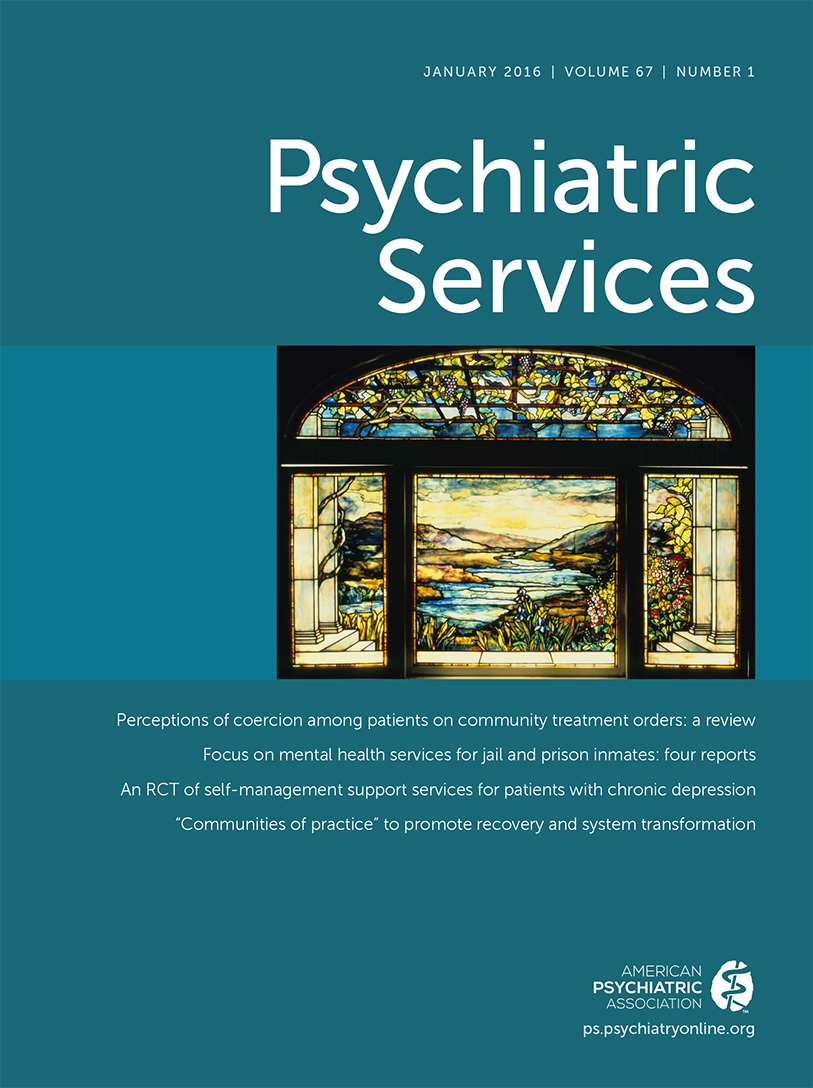Factors Associated With Premature Exits From Supported Housing
Abstract
Objective:
Many homeless consumers who enroll in supported housing programs—which offer subsidized housing and supportive services—disengage prematurely, before placement in permanent community-based housing. This study explored factors associated with exiting a supported housing program before achieving housing placement.
Methods:
With the use of administrative data, a roster was obtained for consumers enrolled in the Veterans Affairs (VA) Greater Los Angeles supported housing program from 2011 to 2012. Fewer (4%) consumers exited this program before achieving housing (“exiters”) compared with consumers described in national VA figures (18%). Exiters with available demographic data (N=51) were matched 1:1 on age, gender, marital status, and race-ethnicity with consumers housed through this program (“stayers,” N=51). Medical records were reviewed to compare diagnoses, health care utilization, housing histories, vocational history, and criminal justice involvement of exiters versus stayers. Exiters’ housing outcomes were identified. Recursive partitioning identified variables that best differentiated exiters from stayers.
Results:
Several factors were associated with premature exits from this supported housing program: residing in temporary housing on hospital grounds during program enrollment, poor adherence to outpatient care, substance use disorders, hepatitis C, chronic pain, justice involvement, frequent emergency department utilization, and medical-surgical admissions. The first of these factors and poor adherence to outpatient medical-surgical care best differentiated exiters from stayers. Moreover, >50% of exiters became street homeless or incarcerated after leaving the program.
Conclusions:
In that diverse social factors, diagnoses, and health care utilization patterns were associated with premature disengagement from supported housing, future research is needed to implement and evaluate rehabilitative services that address these factors, adapted to the context of supported housing.




